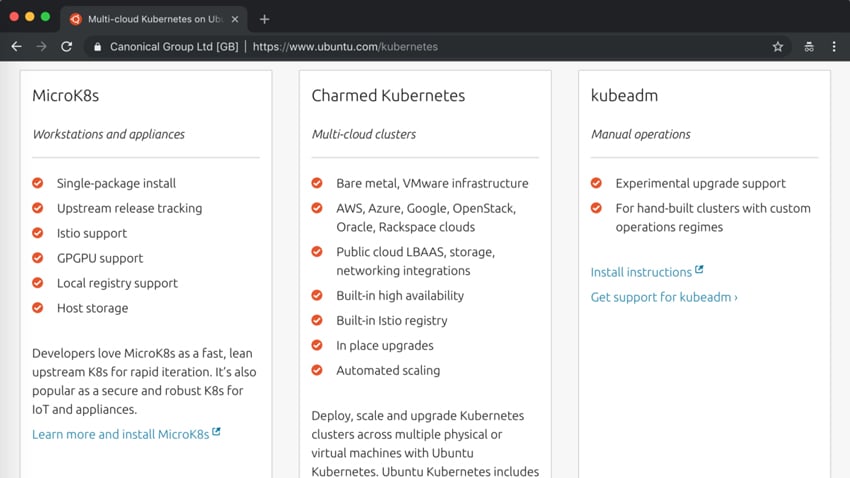
Today Canonical announced enhancements to its MicroK8s. The company announced high-availability clustering in MicroK8s, the workstation and appliance Kubernetes, and enterprise SQL database integration for its multi-cloud Charmed Kubernetes. This should usher in more reliability for Kubernetes for edge, IoT, and multi-cloud.
The quick rise and adoption of Kubernetes can offer several benefits while injecting quite a bit of complexity into everything. Now, the industry is seeing thousands of edge nodes running Kubernetes, and hundreds of cloud Kubernetes clusters. Canonical is looking to shake out some of the complexities with its new Kubernetes offerings as well as embrace standard corporate SQL databases for Kubernetes data stores.
Canonical isn’t just now jumping into the fray. They have previously released their IoT, appliance and developer workstation Kubernetes, with a very small footprint suitable for edge devices and laptops, in MicroK8s. Since its release the company has added clustering and more rapid deployment. Today they are adding high availability by leveraging Canonical’s Dqlite distributed SQL engine. That company states that Dqlite removes process overhead by embedding the database inside Kubernetes itself, and reduces the memory footprint of the cluster which is important for IoT. Dqlite can also be used as the Kubernetes datastore to simplify the deployment of a resilient K8s cluster.
Sign up for the StorageReview newsletter

